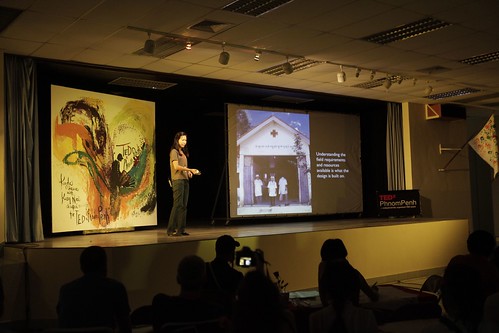 On 10 February Kinyei’s Open Classroom hosted its first women’s reproductive and sexual health workshop. Speaking to 17 participants from diverse backgrounds, a team from Battambang’s Romero Center presented the three hour workshop covering anatomy, mentrual cycles, sex, pregnancy, common diseases and treatments, when you need to see a doctor, and hygiene.
On 10 February Kinyei’s Open Classroom hosted its first women’s reproductive and sexual health workshop. Speaking to 17 participants from diverse backgrounds, a team from Battambang’s Romero Center presented the three hour workshop covering anatomy, mentrual cycles, sex, pregnancy, common diseases and treatments, when you need to see a doctor, and hygiene.
The second half of the day saw a “training for trainers” workshop, where fourteen social workers and housemothers received tips on how to present workshops on women’s health effectively. Most importantly, the participants learnt how to navigate sexual health issues in Khmer culture and how to help participants feel comfortable sharing their problems.
 The workshops were attended by representatives of five different local NGOs, showing that the Romero Center’s program will have a lively future in Battambang. Participants enjoyed the workshops immensely, with one 40 year-old woman saying, with a beaming smile, “[t]his is very good, I have never been able to talk about these things before.”
The workshops were attended by representatives of five different local NGOs, showing that the Romero Center’s program will have a lively future in Battambang. Participants enjoyed the workshops immensely, with one 40 year-old woman saying, with a beaming smile, “[t]his is very good, I have never been able to talk about these things before.”










 The Profile Project is an experiment in ad hoc collaboration in the international development sector. Short video profiles will showcase the human rights work being done on the ground in Battambang and screened at the Shine Human Rights Festival on December 10 2009.
The Profile Project works like this:
The Profile Project is an experiment in ad hoc collaboration in the international development sector. Short video profiles will showcase the human rights work being done on the ground in Battambang and screened at the Shine Human Rights Festival on December 10 2009.
The Profile Project works like this: